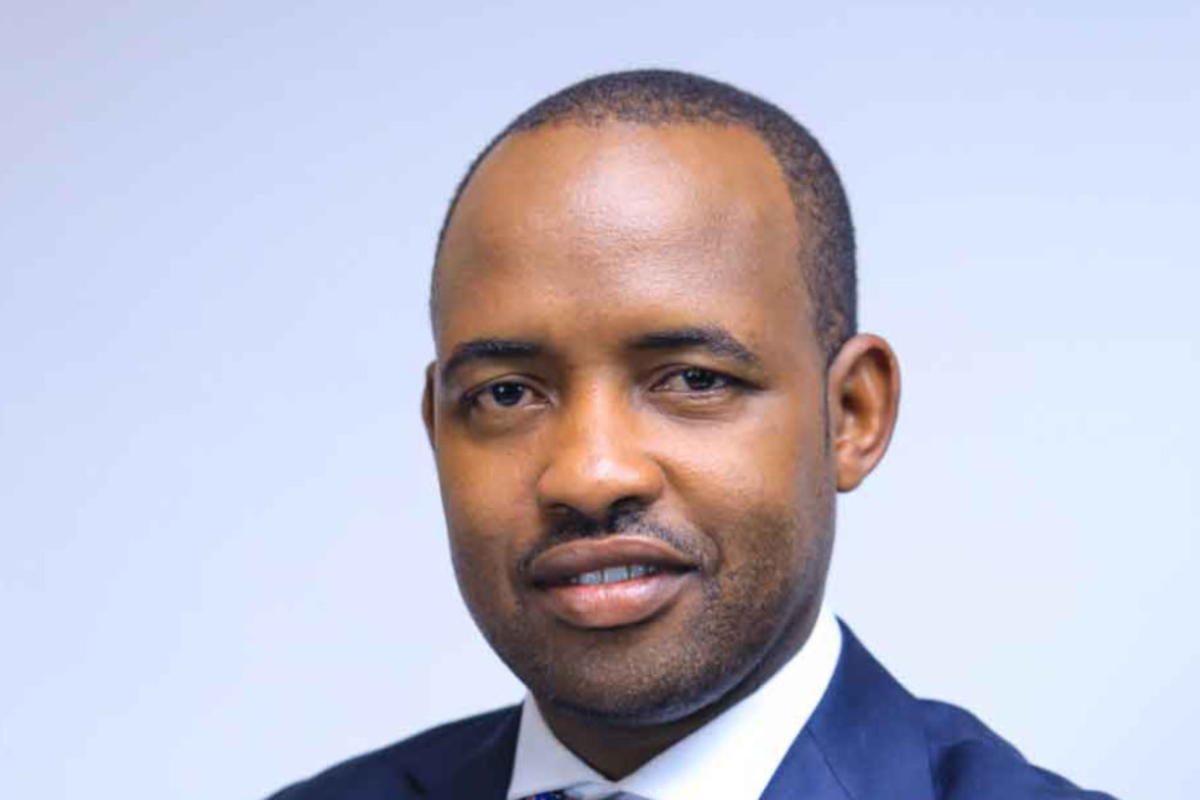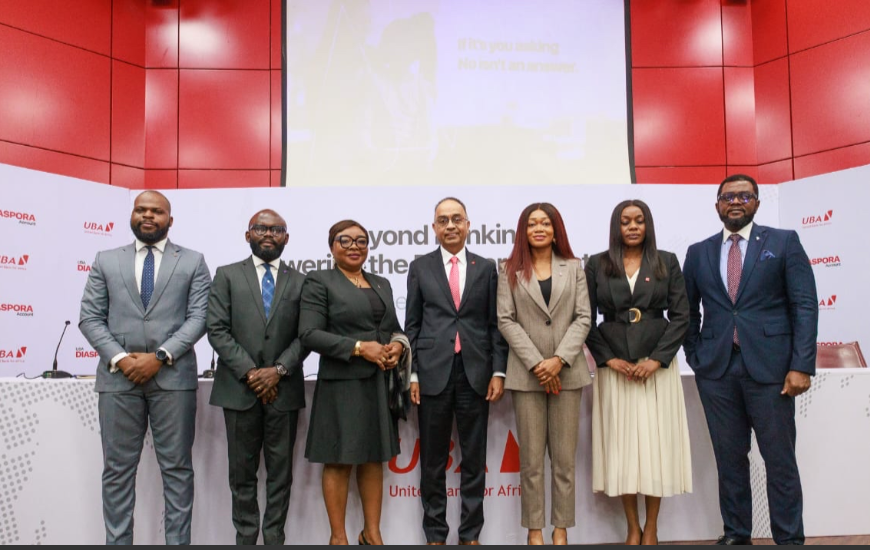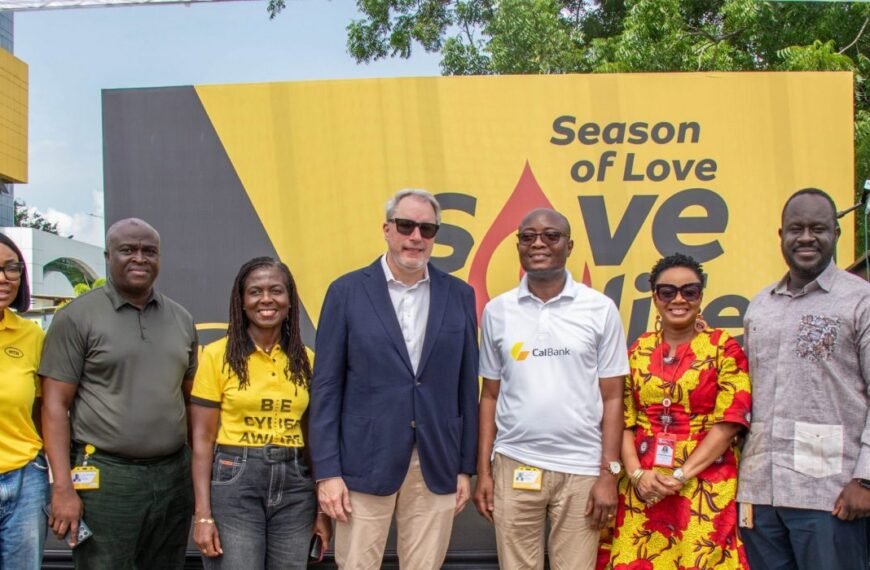
Nigeria’s Tax System Urgently Needs Sensible Reforms – Taiwo Oyedele, Head of Tax and Regulatory Services, West Africa PwC
Tax Compliance Rate In Nigeria Is About 12%.
Multiple Taxation In Nigeria Is a Big Problem
Tax Authorities Have General Responsibility To Educate People
Taiwo Oyedele is the Head, Tax Regulatory Services, at PwC Nigeria (the world’s leading professional services firm with presence in over 150 countries). Taiwo has been in the forefront as a thought leader and prominent speaker on key accounting and tax issues. He is an ardent advocate of tax reforms.
He joined PwC to do his statutory service to nation as a youth corper in 2001. He was confirmed a full time employee in 2002. By 2009, with a dint of hardwork and diligence and in record time, he rose to become a partner in the firm.
Taiwo is a fellow of the Institute of Chartered Accountants of Nigeria (ICAN), fellow and council member, Association of Certified Chartered Accountants of United Kingdom (ACCA), and fellow of the Chartered Institute of Taxation of Nigeria (CITN). He is a highly sought after speaker in global conferences on taxation and fiscal policy.
In this interview with The CFO, the amiable and soft spoken President at Impact Africa Foundation and Council Member at ACCA shares on humble beginning, tax reforms, multiple taxation and many more. Excerpts
How does Nigeria compare to the rest of the world in terms of Tax to GDP Ratio?
Nigeria is not doing well in terms of Tax to GDP ratio. At the moment the rate is about 6% Tax to GDP ratio and the average for OECD countries is close to 30% and for most African countries it is more than 20%. So this is not even a question of developed countries alone, it’s just the fact that we are not doing well.
Ironically when you talk to people on the street, business and individual alike they will tell you that they are paying a lot of taxes and they are not seeing the tax revenue. Its either people don’t understand the taxes they pay or they are truly not paying, or there are significant leakages, or both.
The International Monetary Fund released a report recently and they said for any economy to have meaningful development, you need a minimum of 15% Tax to GDP ratio. And they haven’t seen any country in the world that has been able to develop with less than that. So if we are at 6%, it means a very long journey ahead of us. But that is the way it is now comparing Nigeria with the rest of the world on GDP ratio.
We are one of the lowest in the world, lower than even some war-torn countries like Syria, Afghanistan, those guys have more and we are not in civil wars.
Do you think enough is being done by the government on tax system reforms? What noticeable changes do we have?
I will say Yes and No. I will like to structure it in three (3) different ways. There is what we call the Tax Tripod. They are the three legs of the tax system. It’s just like what you use to hold the camera, if one is missing it can’t stand.
So one leg of that is the Tax legislature, the other one is Tax Policy and the third one is Tax Administration. So in terms of the Tax Law, I will give us a failure mark. We are doing terribly on legislature. We are still using some of the laws we inherited from the British when they were our colonial masters. Even the British have forgotten they have those laws because they have reformed and move on.
Many of them are just against common sense. For instance, if you start a business today, there is something called “Commencement Through”. It makes you pay double tax on your profit, you pay tax twice. The most vulnerable time in the lifespan of a company is when you are just starting. This is because you have a lot of overhead, people don’t even know you, and you don’t have a lot of customers. That is when you need support but that is when you pay double tax in Nigeria.
There is also something they call Minimum tax. If you are unfortunate not to make profit you still have to pay this, because you are supposed to pay income tax base on profits.
All these laws on tax are anti-investment, and they are also not pro development. These things are not rocket science, we need the law makers to sit down and write sensible laws for Nigeria.
On Tax policy I will give us a pass mark and I am only giving us a pass mark because of recent effort by the Minister of finance to review the national tax policy and a new national tax policy has been approved by the federal executive council for implementation. We hope and remain positive that the implementation will at least solve most of our problems.
The third leg of the tripod is the Tax administration, where we also are not doing well. There has been some effort by the federal revenue service and the joint tax board which I do acknowledge but it’s still a very long journey and we still have a long way to go. For many tax authorities around the world, if you just Google their reports, you will be impressed at the details and the extent of analysis. Nigeria we don’t even know how many people we own. Government does not like to pay refund and you also have multiplicity of agencies. Somebody will show up today and say I am from Federal Revenue Service, they are doing audit, before you finish, another person show up and say I am from ITF, sometimes if you are not careful, National Assembly is doing audit.
It’s too much confliction and competition, that why on the use of paying taxes by the World Bank and Pwc, we are ranked 181 out of 190 economies in the world. If you put everything together, I will say we are not doing well because the only bright spot that I see now is tax policy but that still needs implementation.
Are there concrete plan to deepen tax net in the Reforms?
Yes. The issue with Nigeria in terms of the tax system has nothing really to do with the tax rates. Our rates are some of the most competitive in the world; for instance our VAT is 5%. In Ghana it is 15%, in Europe we have 25% and people are paying.
So look at personal income tax, if you earn a 100 million naira per month in Nigeria, your personal income tax revenue will never hit 20% of the amount you earn. The maximum anybody can pay is 19.2% effective tax rate of personal income tax. Go to some country in Europe like Denmark, you pay almost 67% and about 40% in the United Kingdom.
But where is the problem coming from? The problem is coming significantly from non-compliance. So according to the joint tax board, there are now about 14million people nationwide with all the 36 tax authorities like Federal Inland Revenue Service, FCT that can register for personal income tax, its used to be 10million, they manage to move it to about 14million.
Now in the whole of Nigeria, only 943 people pay personal income tax that is 10 million naira or more. All of them are in Lagos except 2 in Ogun state. To pay 10 million naira you must earn income annually of around 40-50million. Does it mean that there are no people in Abuja who earn 50million per annum? There are no people in Port Harcourt, Rivers State, no people in Kano, and Kaduna. It’s unbelievable and it’s an embarrassment to the country that these things are happening and nobody is doing anything about it. According to the finance minister, compliance rate is about 12%. 88% of companies and enterprises that supposed to be charging VAT and remitting it are not even registered. So the level of tax evasion and attitude towards tax is appalling and it is a combination of many factors. So it’s not right to blame only government, I will say government has a bigger role to play but same with the people, the tax payer, the individuals, the institutions, the civil society, the press, we all have a role to pla
y. This is a national crisis that we must address if this country must move forward. The foundation is not solid, but one of the reforms to deepen tax is to use technology, if the government can by making everything automated and the data will be put to use effectively. Here is also the initiative of connecting the FIRS with the Corporate Affairs Commission. It looks somehow that people are registering a whole company and the tax authorities are not even involved, it should be automatic.
What are the intentions of professional bodies to promote positive tax culture?
Actually the tax authorities or government have a general responsibility to educate people. So in law they will say ignorance is not an excuse. You don’t make laws and keep them in lockers and expect people to comply. There is a lot we can all benefit if people understand what they need to do.
People should know their rights and obligations and also demand accountability.
So that education is very important and people can begin to hold government accountable.
I think government, professional bodies, civil societies, and the media and individuals must jointly do this work, it’s a national assignment.
As a professional, what do you think should be done on multiple taxation?
That is a billion dollar question. Multiple taxation in Nigeria is a big problem. You have all manners of taxes from local government, to state government, to federal government and to agencies of government also introducing taxes. Many of those taxes are not even supported by law, many of those taxes never get to the pocket of the government.
We have nothing less than 50million people are unemployed. These people want to start a small business and you need to see the multiplicity of taxes they need to go through, they give up easily.
This is something we have to address and I think the fundamental problems are actually with the constitution itself. Nigeria’s constitution gives powers to federal state and local governments. Now, that includes the power to impose tax which means constitutionally, they can keep imposing as many taxes as they please.
So we have to go back to the constitution and amend it. If we can amend it for election, why can’t we amend it for very important issues on how Nigeria will grow?
My recommendation is that the constitution should be amended such that the state, local government and federal government will still have the power to impose tax because it’s a federal system of government. But the number of taxes should be capped at something like 10.
There is one state, they have environmental tax, pollution tax, ozone layer tax, and they don’t even know where the ozone layer is. They just use all manner of things to collect money from people.
Apart from multiple taxation there is also multiplicity of agencies. You go to the UK and we have HEMRC. You go to Ghana and you have Ghana Revenue Authority, Kenya, you have Kenya Revenue Authority and South Africa, you have South Africa Revenue Authority Service. Whether it’s custom, whether its personal income tax, whether it’s company income tax, whether it’s VAT and even levies. It is consolidated in one entity. But here you have all manners of people collecting their own. So there is no synergy at all. So that also add to the problem of multiple taxation which is killing businesses and it also makes us very inefficient.
Could you please tell us how you got to this career line, and what are the interests?
I always cherish my early years. When I graduated from secondary school, I didn’t know what I wanted to do. Infact, it was my principal who put me in science class when I finished my junior secondary school and the only reason was that I was the best student.
When I finished my secondary school, I still didn’t know what I wanted to do. I was asked to be a doctor but I was not very impressed with the doctors I see around. So luckily when I was in my confusion, an uncle came around and advised me to read accountancy. The rest is history. I was told that if I passed the professional exams, I will be a hot cake. That was the word he used and I like challenges.
Now after I graduated, I wanted to work for the big 4 accounting firm because I like the way people respect them as being very smart and intelligent. When I got into Pwc, the senior partner at that time insisted that we will be in Tax and not Audit that I wanted. The rest is history.
So I went back to tax, and since then it’s been a wonderful experience for me. Now anytime I look back. I say a big thank you to the then Senior Partner, Ken Igbokwe because not only am I able to understand the world around me better, I love the job. He helped me to be able to combine even the Audit knowledge I wanted with Consulting, with Tax Law, with the economy. So it’s been a fantastic experience for me.
What do you do when you are not busy with office work?
Now, I have a lot of interests. So what I do when I am not doing office work, it’s not just one. There are so many. I always look forward to playing with my kids when I get home. Whether I close late or early, they stay awake. So I look forward to that every single day, I am fortunate to have a very good family.
Other than my family, one thing that is very close to my heart is helping people. That is also due to my own background and experience. When I wanted to write my secondary school exams, my immediate family could not help until this association of my village people who were working in Ajaokuta Steel Company helped with scholarship to the best student and that happened to be me. In essence, I started a foundation about two years ago to help less privileged children. So we have awarded about Sixty Six (66) scholarships in just one year. We are planning to do Two hundred (200) this year as we get more funds. I have also written a book and the proxy from the book goes into the foundation. I also have some friends who are supporting the initiative because they know what I stand for.
I also do a lot of mentoring because I have seen that sometimes what young people need is not money. They need words of encouragement. You can tell them how to make the journey smoother than what we experience. If I spent five years (5) figuring out a problem, a younger person should not have to spend that five years. They should spend less. So I do that, I do a lot of reading; I also like to write a lot. I am very big on social media. So I combine technology with tax and the economy.




















